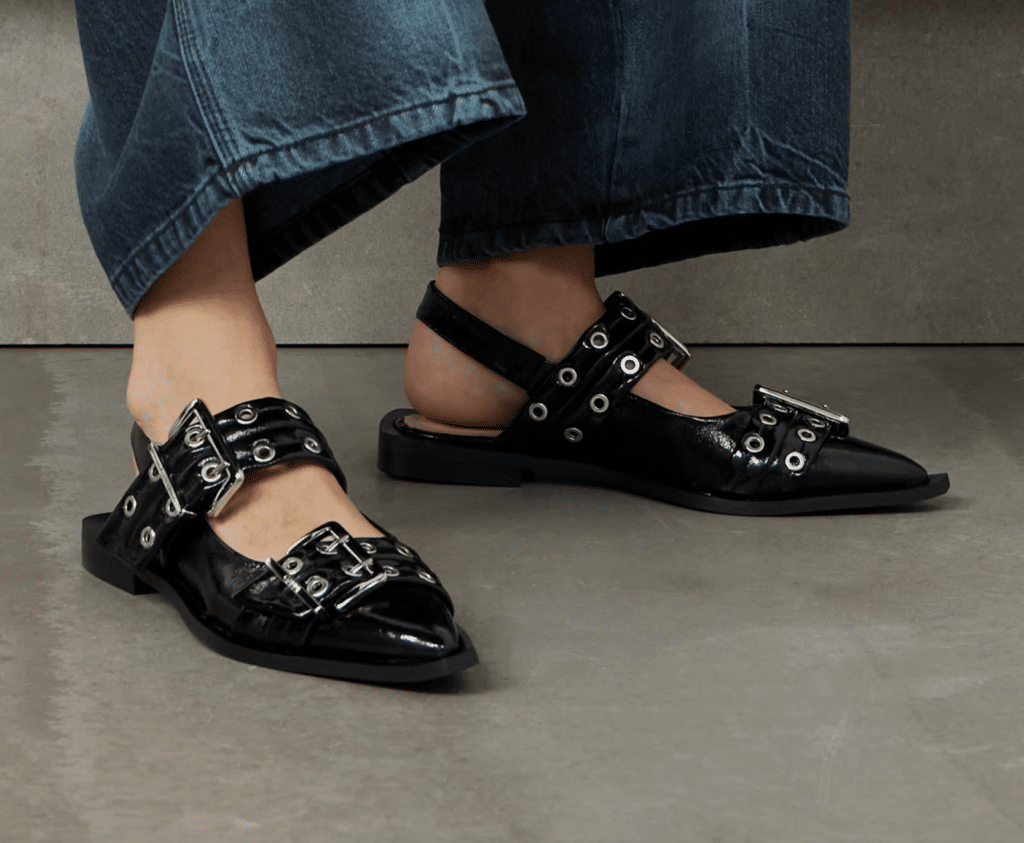In a pair of newly unsealed filings, Nike is urging a New York federal court to hand it an early victory on the willful counterfeiting and false advertising claims it has waged against StockX. According to its motion for partial summary judgment and corresponding memos in support, which were originally filed in August and unsealed this week, Nike alleges that these causes of action are “ripe for summary adjudication because StockX admits the predicate facts establishing these claims.” In particular, Nike argues that StockX has “admi[ted] that it received, examined, advertised as ‘100% Authentic,’ and distributed counterfeit ‘Nike’ footwear.” And StockX “admits that it knew that its authenticity claims were false,” per Nike, and yet, “continued to promote them.”
A Bit of Background: Nike first filed suit against StockX in a New York federal court in February 2022, accusing the sneaker and apparel marketplace of trademark infringement, dilution, and unfair competition (and subsequently adding counterfeiting and false advertising claims) in connection with its Vault NFTs, digital assets linked to authenticated Nike footwear. According to Nike’s complaint, StockX marketed the NFTs using various Nike trademarks, creating confusion among consumers as to the source of the NFTs and/or Nike’s involvement with the project, and leading to public criticism of the NFT-based venture.
False Advertising & Fake Sneakers
Setting the stage in its motion for partial summary judgment, Nike alleged this summer that StockX’s false advertising is “insidious.” While the Detroit-headquartered company “promised that the items it distributes are guaranteed authentic, every time … at each step of the purchasing journey,” Nike claims that, in reality, “StockX’s ‘authentication’ process is merely performative, designed to instill consumer trust in its false authenticity guarantee to gain a competitive advantage.”
The “truth” is, Nike argues, that StockX “peddled counterfeit ‘Nike’ goods and lied to consumers about it. For years.” In other words, StockX built “a global safe haven for counterfeiters to sell unknown numbers of fake ‘Nike’ footwear, often the hottest Nike styles, for hundreds, sometimes thousands, of dollars a pair,” per Nike.
Citing specific examples of instances in which StockX sold counterfeit sneakers, Nike claims that in 2021 and 2022, its investigators purchased four pairs of Nike-branded shoes from StockX, all of which were determined to be counterfeit. The Swoosh points to Roy Kim, a sneaker enthusiast, who purchased 62 pairs of Nike footwear from StockX, 38 of which were determined to be fake Nikes. Additionally, Nike claims that Michael Malekzadeh, a high-volume sneaker buyer and the owner of now-defunct sneaker resale company Zadeh Kicks, received counterfeit Nike products from StockX, as well.
Nike further alleges that StockX’s actions on this front were intentional. In its motion, it claims that StockX employees openly discussed problems with counterfeit goods and that StockX’s internal policies even encourage reselling suspected counterfeit products. “StockX’s pre-lawsuit internal documents admit to the sale of hundreds of fake products,” per Nike, which also points to StockX’s practice of attributing poor-quality counterfeits to alleged manufacturing defects on Nike’s part, thereby deflecting blame. In some cases, “StockX blames the manufacturer (i.e., Nike) for approving a ‘defective’ product for retail,” even though StockX does not have insight into Nike’s quality standards.
With the foregoing in mind, and given that there is “no genuine dispute that (1) Nike’s trademarks are valid and protectable, and (2) StockX offered for sale, distributed, and sold counterfeit ‘Nike’-branded footwear,” Nike maintains that StockX has run afoul of federal counterfeiting and trademark infringement laws, thereby, warranting summary judgment.
At the same time, Nike alleges that “consumer confusion is presumed” when counterfeit products are involved but that StockX exacerbates the issue as a result of the fact that its business model is built on authenticity-centric advertising claims. Nike argues that StockX’s “authenticity claims” mislead consumers into believing every product sold on the platform is genuine. Nike highlights StockX’s statements, including “100% Verified Authentic,” “Guaranteed Authenticity,” and “Always Verified Authentic,” as being deceptive given StockX’s internal recognition of flaws in its authentication process.
The company argues that StockX’s “false Authenticity Claims are the cause of ‘actual or likely injury’ to Nike,” stating that its reputation suffers whenever a consumer unknowingly purchases a counterfeit item on StockX, stating that “many counterfeit products are shoddy, may fall apart, degrade more quickly than authentic Nike footwear and may even cause physical injury.”
Countering StockX’s Motion for Partial Summary Judgment
Meanwhile, in an also-recently-unsealed opposition to StockX’s own motion for partial summary judgment, Nike makes similar arguments about how StockX’s claims of “100% Verified Authenticity” are “literally false.” Nike maintains that StockX’s advertising creates an unambiguous message that consumers can “shop with complete confidence knowing every purchase is 100% Verified Authentic.” The problem, Nike maintains, is that StockX’s practices contradict this guarantee. In particular, Nike cites “admissions that StockX cannot determine whether goods are genuine or counterfeit, lacks knowledge of how many counterfeit goods its ‘expert authenticators’ passed on to consumers, as well as indisputable evidence of StockX’s authentication and distribution of counterfeit ‘Nike’ footwear.”
Nike also counters StockX’s argument on the materiality of its advertising claims, asserting that “authenticity is a ‘core’ value proposition for StockX and its consumers,” and that StockX’s own surveys reveal “authenticity was an important purchase driver for StockX consumers.” According to Nike, among consumers spending $250 or more on sneakers, “authenticity ranked as the top purchase consideration.” These findings confirm the critical role authenticity plays in consumer purchasing decisions, Nike contends, challenging StockX’s claim that its advertising statements are immaterial.
Furthermore, as it did in its own motion for partial summary judgment, Nike argues in response to StockX’s motion that the reseller’s alleged sale of counterfeit goods under the guise of guaranteed authenticity has caused “actual and likely injury” to Nike’s brand. Nike emphasizes that StockX’s resale of counterfeit products leads to a “loss of consumer trust in Nike’s brand reputation,” resulting in “(1) lost sales, (2) negative consumer feedback to Nike and through social media platforms, and (3) harm to Nike’s business partners and/or affiliates.”
Nike drives home its argument that consumers rely on StockX’s authenticity promises and, when counterfeits are sold, they may attribute the poor quality and potential defects of those products to Nike, thereby, damaging Nike’s reputation for quality.
The case is Nike, Inc. v. StockX LLC, 1:22-cv-00983 (SDNY).











